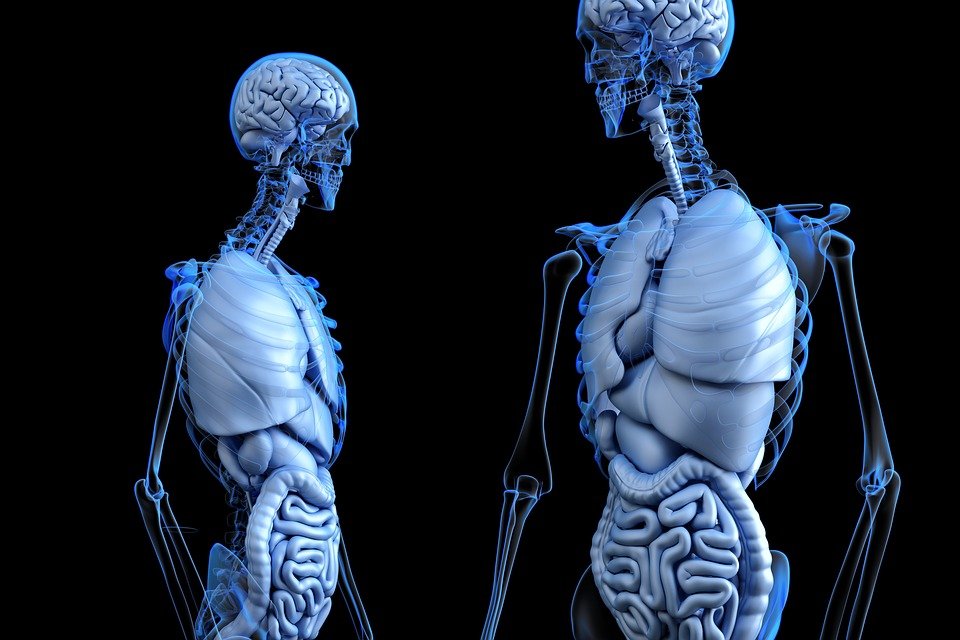
It’s difficult to say that magnesium deficiency is the root of your problems when the mineral is involved in so many different functions in your body. It would be like trying to say that all of your troubles, like not being able to poop, snapping at your kids, and losing your car keys, are all because of one thing. It’s just not likely that something like low magnesium would be the cause of all of those things.
We’re exploring the symptoms of magnesium deficiency and what causes them.
Magnesium Deficiency Symptoms
Before anything else, it’s important to note that many people don’t get enough magnesium in their diet and could improve their health by consuming more of it. However, not getting enough magnesium through diet is different from having an actual magnesium deficiency.
We can be grateful for kidneys because they help to prevent magnesium deficiency by not allowing magnesium to be excreted in urine.
We are discussing the consequences that arise from not having enough magnesium in one’s body. This is something that often confuses doctors because the symptoms are similar to those of other conditions. This is because magnesium is used in many of the body’s functions. It is estimated that 50% of people in the United States do not consume the recommended amount of magnesium. If someone does not have enough magnesium, the effects can range from being a nuisance to being severe.
If your magnesium intake remains too low for an extended period of time, here are the most common signs of low magnesium in the body that can start to appear:
- Muscle weakness, aches, and pains
- Migraines
- PMS
- Irregular sleep patterns and insomnia
- Heart irregularities
- Anxiety and depression
- Digestive trouble and constipation
- Brain fog and memory problems
- Loss of appetite
- ADHD
Despite the fact that magnesium is one of the most inexpensive and abundant supplements, many people disregard the signs of magnesium insufficiency, even though it can lead to various symptoms.
Causes Of Low Magnesium Levels
If you have low magnesium levels, you want to hang onto as much magnesium as you can. These things can work against you, depleting your body of magnesium and causing malabsorption:
- Over-the-counter and prescription medicines: A wide range of medicines, like antacids, antibiotics, birth control pills, blood pressure medications (diuretics), stomach acid blockers (proton pump inhibitors), and more cut into your magnesium stores.
- Chronic diseases: Crohn’s disease, kidney disorders, celiac disease, digestive disorders, type 2 diabetes, low stomach acid, and other conditions can affect magnesium absorption and retention.
- Alcohol consumption: Occasional drinks are fine, but regular alcohol consumption destroys your mineral stores, especially magnesium. You can tell drinking throws off your electrolyte balance because you wake up thirsty, puffy, and bloated—all at the same time.
- Stress: Stress kicks magnesium from the inside of your cells to the space outside your cells, which makes your kidneys excrete it faster. If you have stress here and there, you have enough magnesium to recover. But chronic stress tanks your magnesium, which is one of the reasons you want to manage your stress levels for everyday wellness.
How To Test For Magnesium Deficiency
You can test your magnesium status with the help of a health professional or at home.
You can test for magnesium deficiency at home with an at-home blood test kit. Keep in mind that true deficiency is different from low magnesium levels, and blood tests for magnesium might not be accurate.
Your body stores more than half of its magnesium in the bones and soft tissues, which requires you to test your intracellular magnesium levels—not your serum magnesium (which is what an at-home blood test would do).
You will get the most accurate results for the magnesium RBC test if you set up an appointment with your healthcare provider. This test measures the amount of magnesium that is stored in your red blood cells, which will give you an idea of how much magnesium your body has in reserve in your bones and soft tissues.
Optimal Magnesium Range
If your results for blood sugar are below 6.0 mg/dl, you may need to supplement. To convert the results to mg/dl from mmol/L, multiply the number by 2.43. This level is considered functional. Most labs have a “normal” range, but since everyone has different needs, talk to your doctor to see what your results mean for you.
Vitamin D, calcium, and osteoporosis are all linked. Checking and maintaining healthy levels of these vitamins can help prevent osteoporosis.
How Low Magnesium Affects Your Body
Mood And Memory
These various conditions all suggest that the mitochondria in your brain are not functioning properly.
Turns out, the levels of magnesium determine how much energy your mitochondria make. The available energy in your brain determines:
- How clearly you think.
- How intensely you can focus.
- How calm or anxious you feel.
- How happy you feel.
- How you respond to stress.
Digestion
Magnesium is necessary for regulating the bowels, detoxing the liver, and producing and eliminating hormones. When these processes are not working properly, you can experience some unpleasant symptoms.
Your food mixes with saliva and stomach acid to form a bolus, a semi-solid lump of food when you eat. The bolus moves through the digestive system and gets broken down by various enzymes.
The bowels need to be soft in order to move efficiently, and they need to have enough water content to be soft. Magnesium helps to draw water into the bowels and also stimulates peristalsis, which is the “waves” of muscle contraction that keep everything moving.
If there isn’t enough magnesium, the food can be dry and hard to digest, which can cause constipation.
PMS
Premenstrual syndrome may be caused by an excess of estrogen. One way that your body gets rid of estrogen is through the bowels. When your digestive system is working properly, estrogen is produced and secreted at a good pace for your body. When magnesium intake is low, estrogen can build up in the intestinal tract.
If estrogen isn’t removed from the body soon enough, it will go back into the bloodstream and increase the amount of estrogen that is already being produced.
If you are constipated or have slow digestion because of low magnesium levels, you may also experience relief from PMS by supplementation with magnesium.
Hormone Balance
Magnesium isn’t just good for helping you go to the bathroom regularly, it also plays an important role in detoxing the liver and getting rid of excess estrogen.
The liver breaks down estrogen into water-soluble molecules, which are then excreted. Magnesium is needed for this process to occur quickly.
Magnesium is also important for your body’s production of sex hormones that balance estrogen, including progesterone and testosterone. In addition, most sex hormones are manufactured while you are sleeping, and good magnesium levels improve sleep.
Cardiovascular And Muscle Function
Everyone has experienced over-excited nerve cells at some point in their lives. This can manifest as a cramp during a run, an eyelid that twitches, or gasping for breath.
Nerve cells fire when the concentration of sodium and potassium ions on either side of the cell’s membrane is balanced. A portion of these electrolytes switches places when the nerve cell fires. Magnesium is necessary to maintain this balance and prevent over-excitement or laziness in neurons.
If there is too much firing and magnesium, it will slow down ion exchange. When there aren’t enough nerve impulses, magnesium will start the exchange process.
Every muscle in your body depends on magnesium to keep this system working properly. If you experience any of the following signs, you might need more magnesium for your nerves and muscles to play nicely together:
- Heart rhythm irregularities, palpitations, or “flutters” are also known as arrhythmias in the medical world.
- Muscle spasms.
- Muscle cramping.
- Restless leg syndrome.
- Twitching eyelids, lips, or skeletal muscle.
- Nightly leg cramps, especially during pregnancy.
Although magnesium deficiency can be the root cause of some symptoms, there are other potential causes that may be serious and require medical attention. Always consult with your doctor to determine the cause of your symptoms and whether or not changes are necessary.
So Many Different Types of Magnesium. Which is Best for Me?
Magnesium Glycinate or Magnesium Bisglycinate
The magnesium supplement I usually recommend for my athletes is magnesium glycinate or magnesium bisglycinate. This form of magnesium can be taken orally and is known as a chelated amino acid supplement. In other words, this form of magnesium binds to an amino acid and therefore relies on a protein pathway for availability and absorption.
Magnesium glycinate is a type of magnesium supplement that is readily available and typically well tolerated. It is a little more expensive, but this is because it is more absorbable than other forms. Magnesium bisglycinate is the only form of magnesium that is able to cross the blood-brain barrier, making it especially useful for athletes who deal with anxiety, headaches, and mood-related disorders. The only magnesium supplement that is as effective as magnesium bisglycinate is magnesium chloride, which is found naturally in seawater and is soluble in water.
Magnesium Citrate
Magnesium citrate is a popular recommendation for people who have trouble moving their bowels. This form of magnesium is an osmotic laxative. An osmotic laxative pulls water into your intestines while relaxing your bowels. This flood of water helps to simultaneously soften and bulk up your stool, thus making it easier to pass.
Magnesium Oxide
Make sure to avoid magnesium oxide, as the body has trouble absorbing it. Many over the counter supplements contain magnesium oxide, so be careful when taking them.
Transdermal Magnesium
For individuals with severe gastrointestinal distress who cannot tolerate oral magnesium supplementation, transdermal magnesium (applied to the skin) may be a useful option.
It is best to determine the amount of magnesium you need with the help of a physician or registered dietitian. Pure Encapsulations Magnesium Glycinate is a good option for a magnesium supplement.
But, I hate swallowing pills!
I understand that you are sick of swallowing your vitamins each day. I have found a solution that many of my athletes use – magnesium chewables. These taste great and can last in the fridge for up to 4 days.
Magnesium Chewables
Step 1:
In a small saucepan, mix 3/4 cup of your favorite cold-pressed juice with 5 scoops of Thorne Magnesium Bisglycinate Powder. Gently stir until clumps are almost entirely broken apart and dissolved.
Step 2:
Add two scoops of Vital Proteins Collagen Gelatin to the mixture and don’t stir right away. You’ll see that the juice mixture starts to ripple when you add the gelatin.
After letting the mixture sit for a few minutes, set the pan on your stove over medium heat. Stir the mixture with a spatula until the liquid is thin and mixed well together. The mixture should not be lumpy and gelatinous, but more like a thick juice.
Step 3:
Pour the mixture into a silicone mold and set it on top of a cookie sheet. Put it in the fridge for one hour.
Step 4:
Remove the gummies from the silicone mold and divide them into servings. I recommend starting with a serving of 200mg of magnesium. The key is to make sure you read the label correctly on your magnesium container and divide the dosage accordingly. For example, if the Thorne powder offers 1000mg of magnesium bisglycinate for 5 scoops, and your mold makes 15 gummies, then 3 gummies would equal 200mg.
The chewables can be taken at any time of day, but since magnesium can have a relaxation effect, it is best to take the entire 200mg dose 30-60 minutes before bed.
Whether you are trying out a new supplement or race-day nutrition strategy, it is important to test it out in advance to make sure your body can tolerate it. This will help you avoid any unwanted surprises on race day.
If you are not a collegiate or professional athlete, you can use your favorite magnesium powder. If you are more prone to constipation, you may want to consider magnesium citrate in powdered form.
Here’s the gist: magnesium deficiency is common and has a bunch of signs. Magnesium is important to the body’s function, so if you think you might be deficient, talk to your healthcare provider.














